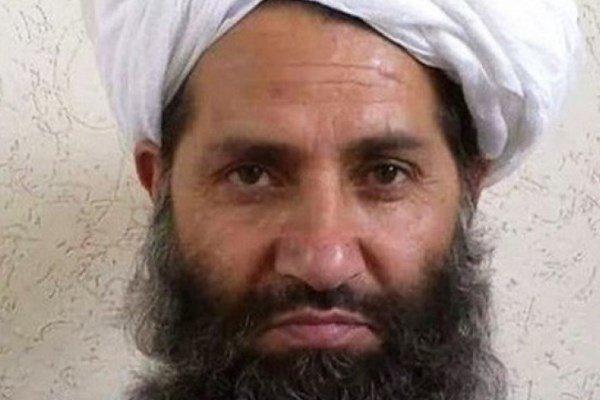Exclusive: Egypt’s Nato-style Arab defence force proposal rejected at Doha summit
Exclusive: Egypt’s Nato-style Arab defence force proposal rejected at Doha summit

Egypt’s plan to form a Nato-style Arab defence force was blocked at this week’s Doha summit by Qatar and the United Arab Emirates (UAE), revealing deep divisions over regional security and the Israeli threat, Egyptian diplomats told Middle East Eye.
“Egypt proposed a defensive regional force under the 1950 Joint Defence and Economic Cooperation Treaty, aiming to establish a rapid-response alliance to shield member states from external threats, particularly Israel,” a senior Egyptian diplomat said. “But Qatar and the UAE mainly blocked the plan.”
“Foreign Minister Badr Abdelatty presented the proposal to his Gulf counterparts as a defensive step to protect the region without relying on foreign powers,” the diplomat added.
According to the senior official, the main disagreement was over leadership: Saudi Arabia wanted to take command, while Egypt argued it was best placed given its long military experience.
Days later, however, Saudi Arabia signed a mutual defence pact with nuclear-armed Pakistan, amid growing fears in the Gulf over the US’ willingness to constrain Israeli belligerence.
“Gulf states also ruled out including Iran or Turkey. In the end, they chose to confine the matter to their own defence council,” he explained.
Egyptian President Abdel Fattah el-Sisi, meanwhile, left Doha “deeply frustrated” after Gulf states rejected his proposal, the diplomat said.
MEE reached out to Qatari, Saudi and UAE foreign ministries for comment but received no response by the time of publication.
The summit, held on 15 September and bringing together leaders from the Arab League and the Organisation of Islamic Cooperation (OIC), left several states dissatisfied. The gathering was held days after Israel attacked Hamas leadership in Doha, killing six people.
Egypt had hoped for concrete steps, or at least a clear stance demanding an end to Israel’s genocide in Gaza and rejecting any forced displacement of Palestinians into North Sinai, the diplomat said.
US influence
Despite the summit’s aim of presenting a united Arab-Islamic front, US influence shaped the outcome, limiting Arab action to statements of support for Gaza and condemnation of Israel.
“A Qatari delegation returned from Washington with messages to Arab states, stressing that no resolutions should be taken against Israel,” another senior Egyptian diplomat told MEE.
“The Americans promised that President Donald Trump would manage the crisis and restrain Israeli Prime Minister Benjamin Netanyahu from launching similar attacks on another Gulf country,” he added. “The Emiratis strongly supported this stance.”
Other Arab states “found themselves cornered when Qatar’s stance, backed by the UAE, dominated the meeting”, the diplomat explained.
“They decided that any step against Israel would now be futile, and that the best option was to push the US to pressure Israel into a ceasefire in Gaza,” he said, adding: “Most of these talks took place between the foreign ministers of Gulf states and their Egyptian counterpart, Abdelatty, behind closed doors on the sidelines of the summit, and were not made public.”
The summit’s final statement denounced the Israeli strike on Doha but fell short of concrete action, once again highlighting the divisions among Arab states over how to respond to Israel and the war in Gaza. For Egypt, the outcome underscored a sense of isolation within the broader Arab coalition.
Sisi calls Israel an 'enemy'
A prominent political analyst said the rejection of Sisi’s proposal revealed “deep divisions within the Arab world over how to confront Israel”.
“The summit only agreed to convene a Gulf Defence Council meeting, a clear sign to Cairo that Gulf states are unwilling to support Egypt,” the analyst told MEE on condition of anonymity.
“For Egypt, the outcome was a setback at a time when Israeli threats extend beyond Gaza. Sisi had hoped to project Egypt as a leader of Arab and Islamic defence, but the summit ended without any decisive commitments.”

In a notable escalation, Sisi described Israel as “an enemy”, the first time he has done so since taking office in 2014, reflecting Cairo’s growing sense of threat.
“Israel’s threats to target Hamas leaders in Cairo and the potential displacement of Palestinians into North Sinai have deeply alarmed Egypt,” the analyst said.
The backdrop to Egypt’s stance dates back to the post-World War Two era.
Signed in Cairo in 1950, the Joint Defence and Economic Cooperation Treaty aimed to unite Arab states through collective security and economic cooperation. It created a Joint Defence Council to coordinate military strategies and an Economic and Social Council to foster regional development. Its guiding principle was simple: an attack on one member would be considered an attack on all.
Ambitious on paper, the treaty soon struggled to gain traction. Political rivalries, clashing national priorities and regional disputes undermined its effectiveness. Over time, member states turned to bilateral security deals or outside powers, rather than relying on the pact.
Decades later, in 2015, Egypt tried to revive the treaty at a summit in Sharm el-Sheikh, proposing a unified Arab military force.
While the idea initially received support, disputes over leadership and funding again proved an obstacle.
“The repeated failures underline the long-standing challenge of achieving Arab military cohesion,” the analyst noted.
Egypt was also the first Arab state to normalise ties with Israel in 1979 under a US-brokered peace treaty, but public sentiment remains largely opposed, with Egyptians still viewing Israel as an enemy.
On 12 September, MEE reported exclusively that Egypt had uncovered an Israeli plot to assassinate Hamas leaders on its soil, warning Tel Aviv that any attempt would be met with force. This latest security revelation added urgency to Egypt’s defensive ambitions and its concern over Israel’s expanding operations.







